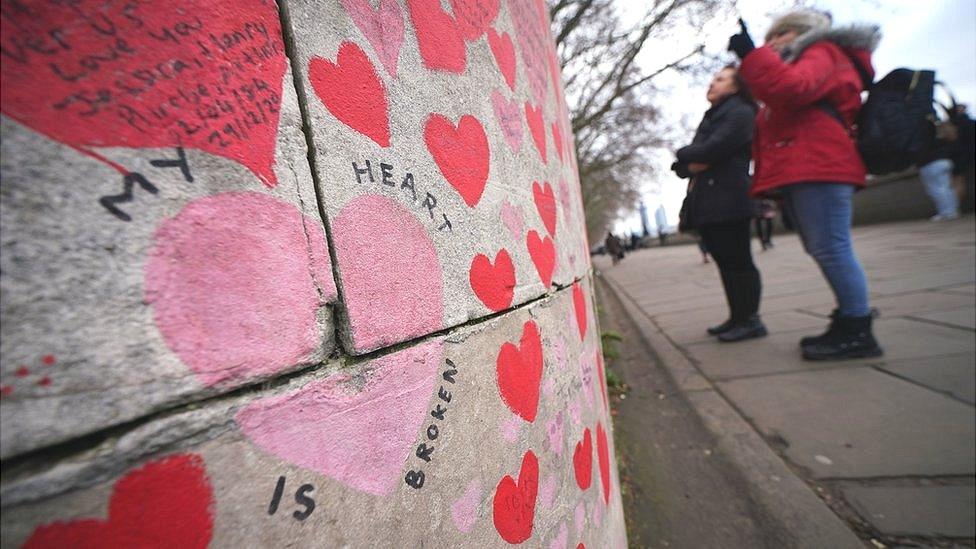Sue Gray report: 'While people died with strangers, they partied'
- Published
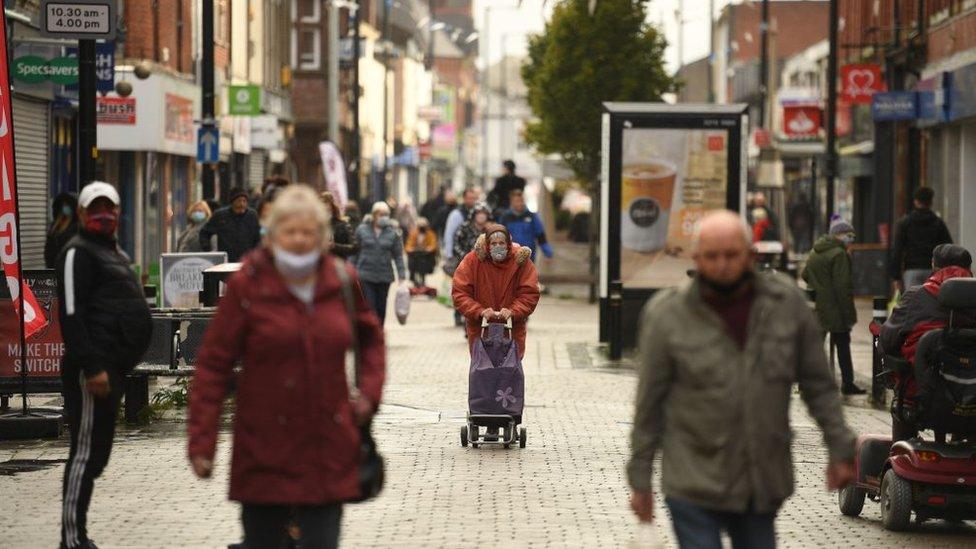
In 2019 Boris Johnson swept to power on the back of "red wall" seats like the former mining town of Leigh in Greater Manchester, which voted Conservative having been Labour since 1922.
In the wake of Sue Gray's initial report, BBC North of England reporter Nick Garnett visited the town to find out if the mood had changed.
On the morning of the election result voters told me of their disaffection with Labour and their desire to "get Brexit done". They were enthused by the prospect of Mr Johnson as prime minister and wary of a Labour Party led, at that time, by Jeremy Corbyn.
But two years on, the first findings of the Gray Report have thrown their support for Mr Johnson into doubt.
"There's something seriously going wrong in this country," says Philip Farnworth in his cafe at the bus interchange.
Mr Farnworth, 55, who runs a cafe called Scrumptious, tells me why the talk of parties in Downing Street hurt so much.
"My brother died of Covid three weeks ago. We were fortunate - we could spend some time with him.
"But all these other people who passed away with total strangers while they were partying? Well, it's absolutely disgusting."
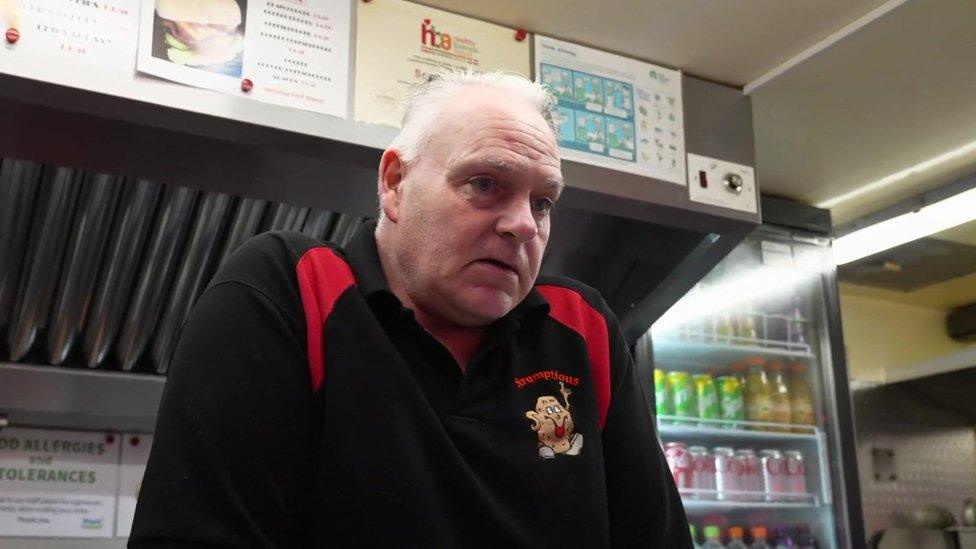
Philip's brother died with Covid three weeks ago
Philip flips over two rashers of bacon on the grill with one hand while readying the coffee maker with the other in the small kitchen. In 2019 he'd voted for Boris Johnson.
"I expected someone with a bit of decency. All of them should resign - every single one who attended these parties, laughing and giggling, while people were dying on their own. They've shown their true colours, haven't they?"
Time and again, I'm told the same thing by people I stop and talk to.
Dave Lister is a butcher in Leigh's Market Hall.
"We used to have an old gentleman come in all the time. I'd known him for years and years and then he just never reappeared and then his daughter rang to say he'd gone," he says.
"They've done wrong, haven't they? It's bang out of order. They should be adhering to these rules more than us."
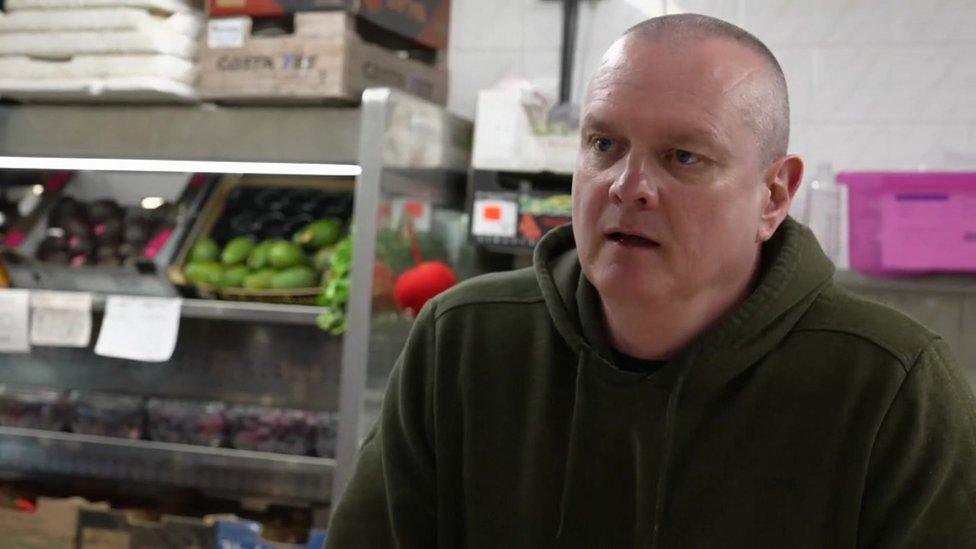
Paul Naughton said he was more concerned about job security
Not everyone, though, is concentrating on events around so-called "Partygate". Some, like greengrocer Paul Naughton, are more worried about the cost of living than things that happened two years ago.
"I'm concerned about my job security and the bills I have to pay. I work very hard, my wife works very hard and we have nothing to show for it. We work to survive."
Meanwhile, on another market stall, Glen Furnival, a fishmonger and butcher, explains how his confidence in the government has been knocked.
"I find it very difficult to have faith in the government when the people at the top are making the rules and breaking the rules."
Asked whether or not Boris Johnson can win his trust back, Mr Furnival says: "He can… but he'd have to work very, very hard."
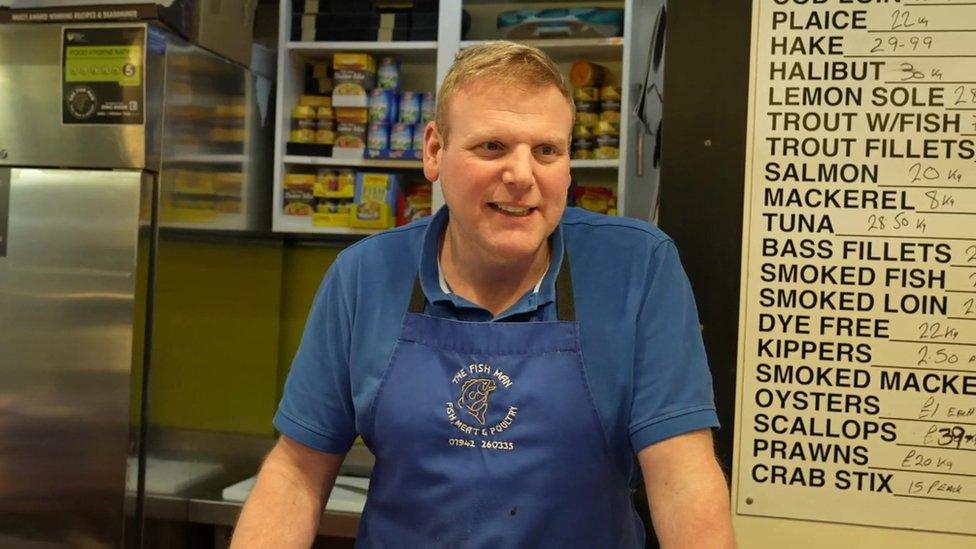
Glen Furnival's confidence in the prime minister has been knocked
I walk over to meet Sheila Bayley, 67, at the vape store she runs in the market.
It's been a tough couple of years for her. The lockdowns closed her business, stock ran out of date and was spoiled, there was no financial support and, as restrictions were eased, she found herself scared to go out of her home again.
But it was the loss of her sister-in-law to Covid that hit her hardest - and she directly blames Mr Johnson.
"I have said I'd rip his head off if I came face to face with him," she says.
"They were having parties while everyone else was in lockdown. It's made me angry.
"It's the poorer people that suffer because we were in lockdown while they were swanning about having parties. How can he lead us when he's doing things like that? It's one rule for us and one rule for them."
- Published31 January 2022
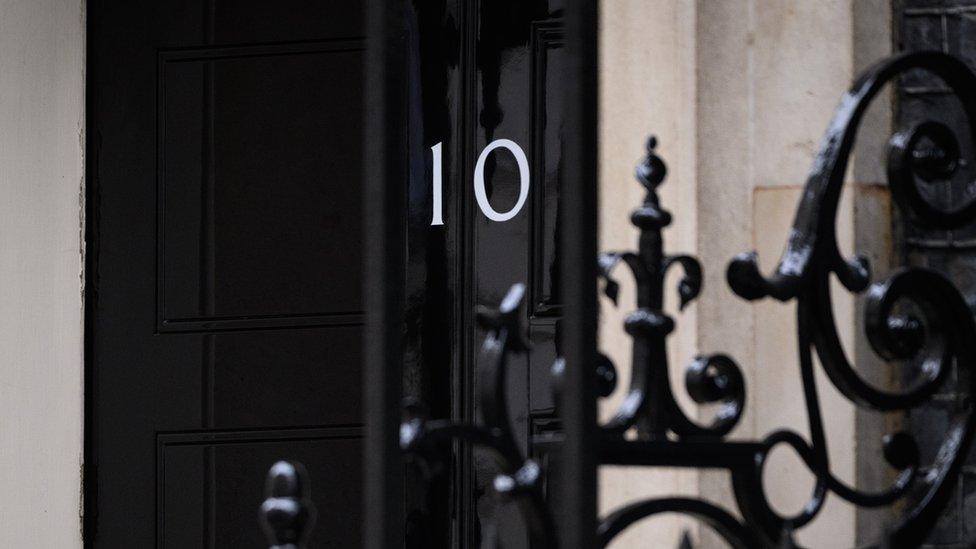
- Published25 May 2022
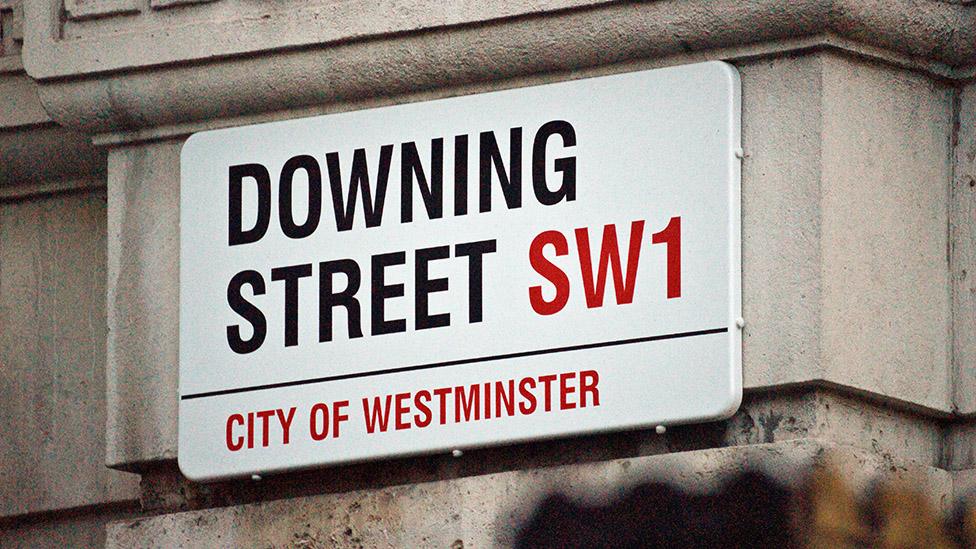
- Published31 January 2022
